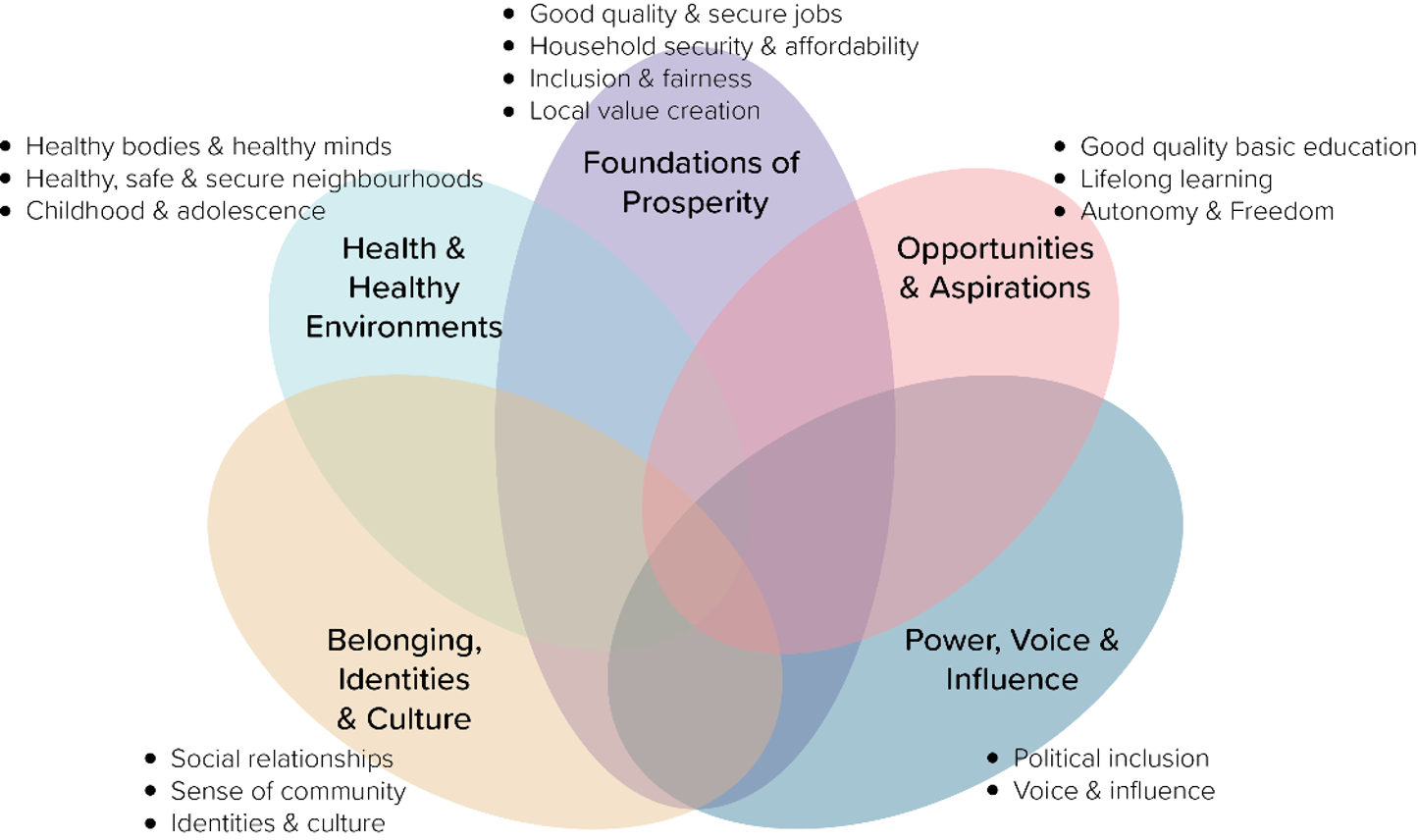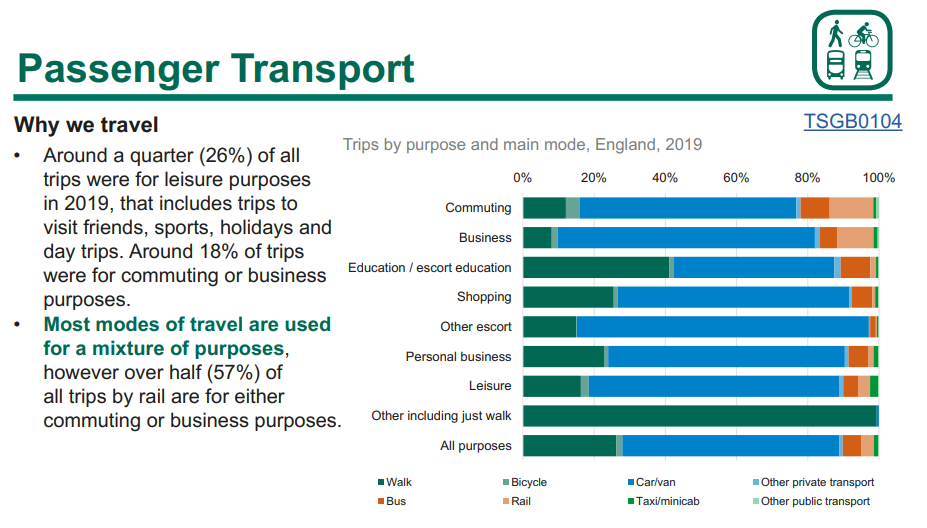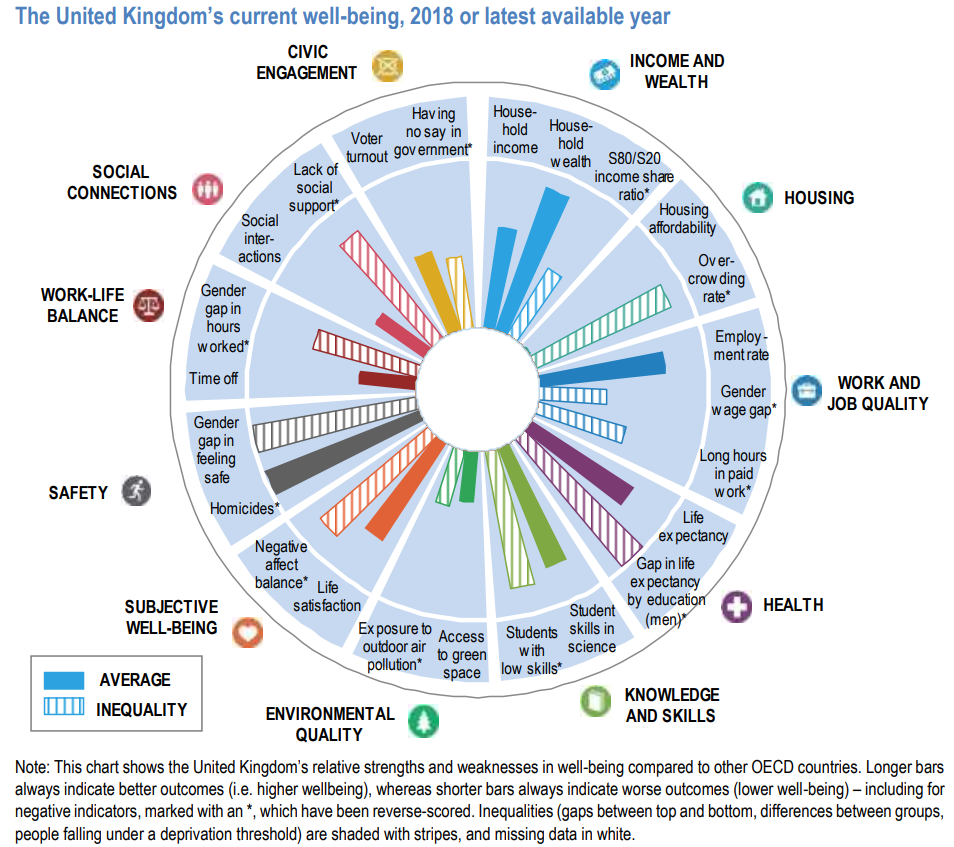Participation Gap/Democratic Deficit
VOTING
CITIZEN ASSEMBLIES
Rethinking Prosperity & the Prosperity Index (PI)

IN WORK POVERTY – relates to good quality and secure jobs
The total number of workers in poverty has gone up over the last 20 years from 2.3 million workers in 1996/97 to 4 million workers in 2017/18. Of these 4 million workers in poverty, 1.9 million are full-time employees, 1.4 million are part-time workers and 0.7 million are full-time self-employed workers. Just under half of workers in poverty in 2017/18 are full-time employees. In-work poverty (defined here as the proportion of workers who are in poverty) has risen in recent years and stood at almost 13% in 2018/19.
(Source: Joseph Rowntree Foundation)
GREEN SPACES – relates to healthy environments

(Source: GreenspaceScotland)
EDUCATION
In 2018, the UK 18-year-old entry rate to university was at a record level.
The Education Policy Institute (EPI) study flags wide and in some cases growing inequalities between ethnic groups. In 2011, black Caribbean pupils were 6.5 months behind their white counterparts by the time they sat their GCSEs – that difference has now grown to 10.9 months, according to analysis of the government’s own statistics.
Disadvantaged pupils are 18.1 months of learning behind their peers by the time they finish their GCSEs – the same gap as five years ago – but in primary schools the gap increased for the first time since 2007, up from 9.2 months in 2018 to 9.3 a year later.
A key factor, the EPI says, is the rise in the proportion of pupils who live in persistent poverty, up from 34.8% in 2017 to 36.7%.
In some areas the gap is even wider with poorer pupils in Blackpool, Knowsley and Plymouth more than two full years of education behind their peers by the end of secondary.
Gypsy/Roma pupils are almost three years (34 months) behind white British pupils at GCSE level, while Chinese pupils are two whole years ahead.
(Source: The Guardian, August 2020)
SENSE OF COMMUNITY
Our sense of belonging to our neighbourhoods across the UK declined between 2014 to 2015 and 2017 to 2018.
(Source: Social Capital in the UK: February 2020)
Universal Basic Services (UBS)
FOOD-POVERTY
INTERNET



HOUSING
(Source: Tackling the under-supply of housing in England, House of Commons Library, January 2021)


(Source: Llena-Nozal, A., Martin, N., and Murtin, F. (2019), “The economy of well-being: Creating opportunities for people’s well-being and economic growth”, OECD Statistics Working Papers, No. 2019/02, OECD Publishing, Paris.)

Fatemeh Sadeghi
30 May 2024 Feminists in the Global South have stepped out of the conventional territories of ‘women’s matters’ into more fund...